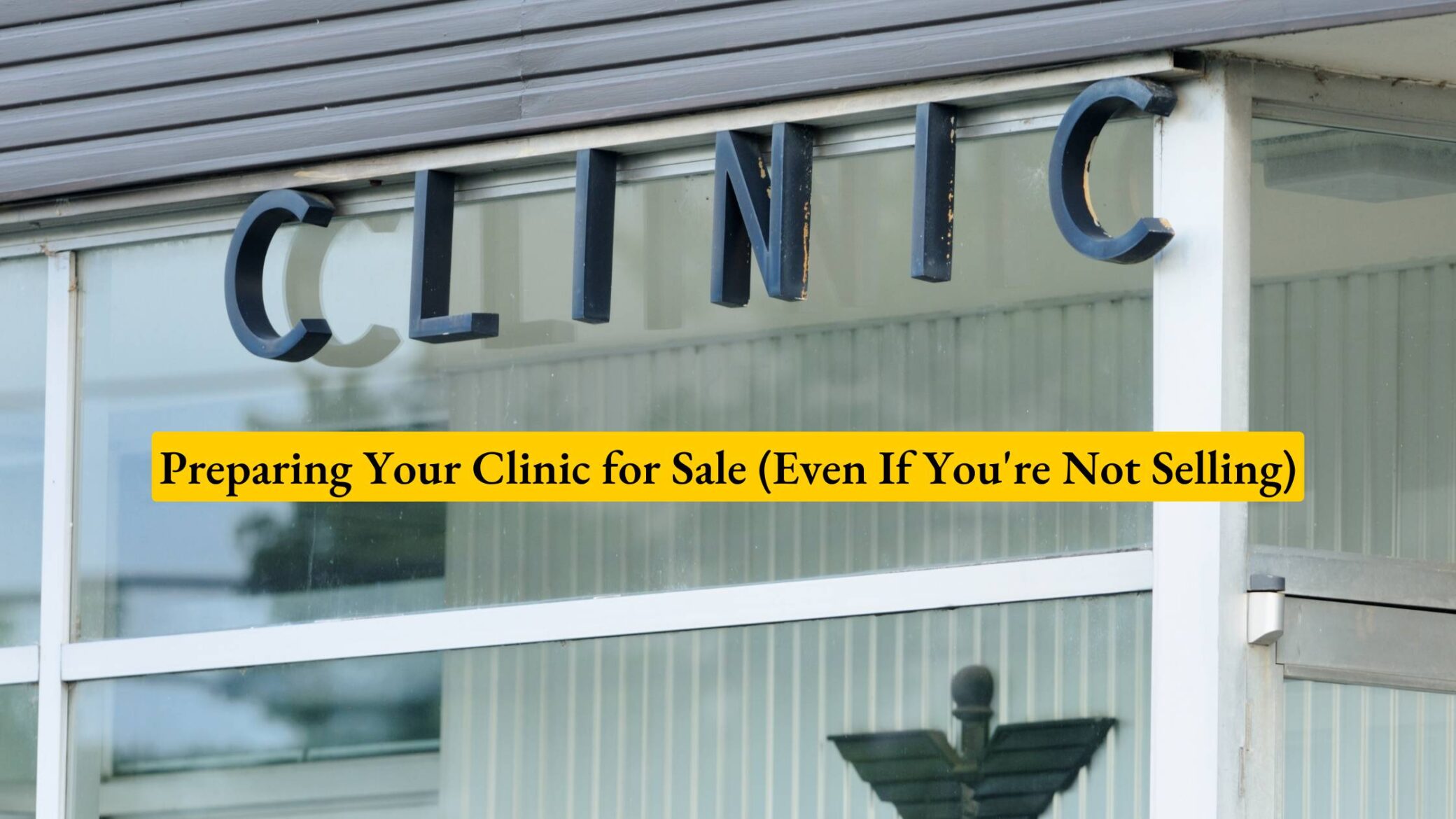Welcome to a new series on Your Business Unleashed, where we dive deep into what it really takes for health care professionals—medical doctors, dentists, vets, physiotherapists, and more—to get their practices ready to sell. Whether you plan to transition in six months or ten years, the groundwork starts now. And leading us through this journey is Gord McFarlane, founder of McFarlane Transition Advisors and former Managing Director of Corporate Development at FYI Health Group.
In this first episode, we lay the foundation by addressing a powerful question: Is your clinic truly a business, or just a job you’ve built for yourself?
Why Readiness Matters Before You’re Ready?
One of the biggest red flags Gord noticed during his years of acquiring practices is how many health care professionals are caught off guard when an acquisition offer lands in their inbox. They’re flattered but unprepared. And being unprepared can cost you—in the value of your practice, in real terms, or worse, in deal failure.
Getting your clinic ready isn’t just for those who want to sell immediately. It’s about building a scalable, transferable business that holds long-term value. The process is the same whether you’re planning to retire, transition internally to partners, or simply want to future-proof your operations.
What are the Top Issues That Reduce a Clinic’s Sale Price?
- Too Much Personal Goodwill: If you are the only revenue driver, your business is at risk. Buyers worry about what happens if you’re suddenly out of the picture.
- Lack of Team Infrastructure: Practices without a cohesive, well-trained team struggle to transition smoothly.
- No Strategic Plan: Gord often asks sellers for a strategic plan—many had not even considered one. Planning is key.
- Unorganized Financials: Mixing investments or unrelated assets into your professional corporation could disqualify you from tax benefits like the Lifetime Capital Gains Exemption, which could save over $300,000 in income tax.
What Can You Do Now to Increase the Sale Price of your Clinic?
- Financial Readiness: Clean up your balance sheet, separate investments from operating assets, and prepare for due diligence early.
- Build a Strong Culture: Your team should be empowered to deliver care and maintain client relationships with or without you.
- Process Documentation: Ensure your billing systems, KPIs, patient turnover, and collections are clearly outlined and monitored.
- Lease Planning: Don’t let your lease expiry dictate your sale timeline. Use it as a strategic trigger instead.
- Lifestyle and Retirement Planning: Know what you want post-transition. Whether it’s building guitars or golfing, clarity here makes decision-making easier.
Lessons from the Field: Deals That Worked, and Some That Didn’t
- One deal fell apart because the doctor, though brilliant and high earning, was the entire business. No team, no backup, just personal goodwill—and that’s not transferable.
- Another deal succeeded beautifully: two longtime partners with clean financials, great systems, and a strong team. They kept equity in the acquiring firm, cashed out part of their business, and stayed in a continuing role—the best of both worlds.
Start Early: The Ideal Timeline
If you’re thinking of selling “someday,” start planning today. It takes at least two years to be structurally and financially ready, and ideally three to five years to properly prepare. That aligns perfectly with the goal of making your business less dependent on you—a key factor in increasing valuation.
If your clinic can’t thrive without you, it’s not yet a business—it’s a job. And jobs don’t sell. By shifting your mindset and putting key strategies in place, you can increase your practice value, ensure a smoother transition, and open doors to flexible future options.
Whether you’re planning to exit or not, building a business that works without you is the ultimate form of freedom. Stay tuned for upcoming episodes where we’ll tackle valuations, tax structures, and much more.
Get in Touch
Ready to begin your transition journey or just want to explore your options? Reach out to Gord McFarlane at transitionadvisors.ca or email gord@transitionadvisors.ca.

